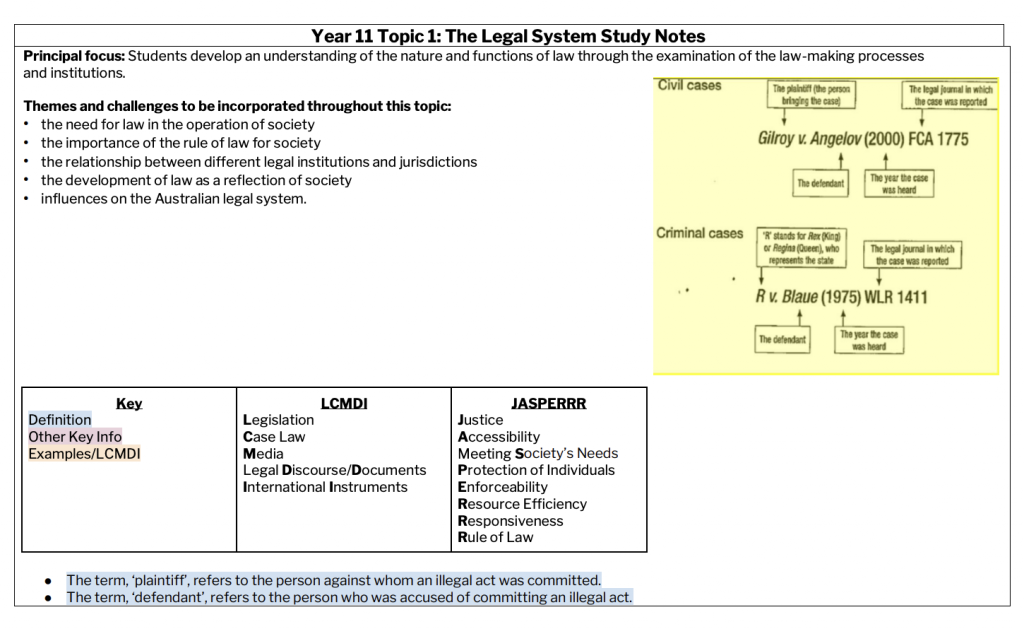Year 11 Legal Studies NSW (Grade 100)
Summary:
The first pages of the document “Year 11 Legal Studies NSW” for Year 11 students focus on the foundational concepts of law, its origins, and its significance in society. The document outlines the principal focus and themes, such as the need for law, the rule of law, and the relationship between different legal institutions. It introduces key terms like “plaintiff” and “defendant” and discusses the role of legislation, case law, and media in shaping legal discourse. The document delves into basic legal concepts like the meaning of law, distinguishing it from customs and rules. It explains that laws are enforceable rules of conduct that create order and prevent chaos. Customs are established patterns in society, while rules are prescribed directions for conduct not enforceable by the state. The document also touches upon values and ethics, explaining that values are societal principles, and ethics are rules governing conduct. It briefly discusses the characteristics of just laws, which should be current, acceptable to society’s values, enforceable, and treat everyone equally. The document also introduces the concept of justice, which involves fairness, equality, and access.
Excerpt:
Year 11 Legal Studies NSW
| Year 11 Topic 1: The Legal System Study Notes
Principal focus: Students develop an understanding of the nature and functions of law through the examination of the law-making processes and institutions. Themes and challenges to be incorporated throughout this topic:
|


Reviews